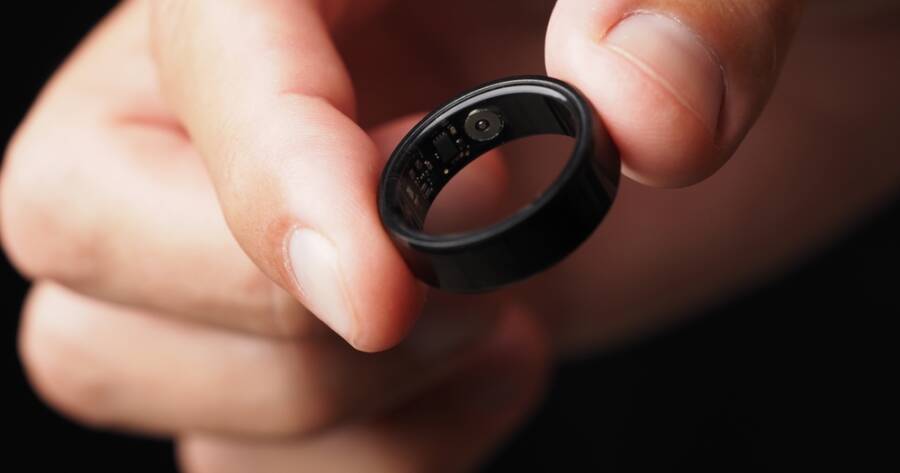In an age where technology seamlessly integrates into our daily lives, AI-powered wearable health devices are transforming personal healthcare. From tracking vital signs to predicting potential health issues, wearables like the Apple Watch, Oura Ring, and Fitbit are empowering users to take control of their wellness like never before. These devices leverage artificial intelligence to analyze real-time data, providing insights that were once only available through medical professionals. This article explores how AI-driven wearables are revolutionizing health and wellness, their benefits, and their potential future impact.
The Rise of AI in Wearable Health Technology
Wearable health devices have evolved significantly from simple pedometers to sophisticated AI-driven health monitors. According to a report by Grand View Research, the wearable technology market is expected to reach over $150 billion by 2028, with AI playing a crucial role in its growth. The incorporation of AI has enabled wearables to:
- Monitor heart rate variability (HRV) and detect irregularities like atrial fibrillation.
- Track sleep patterns and suggest improvements for better rest.
- Measure blood oxygen levels (SpO2) and stress levels.
- Provide personalized fitness coaching based on real-time biometrics.
These advancements have made wearables indispensable for individuals seeking a more proactive approach to health management.
How AI-Powered Wearables Improve Personal Healthcare
1. Early Disease Detection and Prevention
One of the most groundbreaking aspects of AI-powered wearables is their ability to detect early signs of medical conditions. The Apple Watch has FDA-approved ECG capabilities that can alert users to atrial fibrillation, a serious heart condition that can lead to stroke if untreated. Similarly, AI-driven blood oxygen monitoring can help identify potential respiratory issues before symptoms become severe.
Wearables are also being used to track early signs of chronic illnesses such as diabetes. Continuous glucose monitors (CGMs) like the Dexcom G7 and Abbott FreeStyle Libre use AI algorithms to provide real-time blood sugar insights, helping individuals with diabetes better manage their condition.
2. Optimizing Sleep and Recovery
Devices like the Oura Ring and Whoop Strap focus on sleep tracking and recovery optimization. AI algorithms analyze heart rate, temperature fluctuations, and movement to provide insights on sleep quality. These insights help users adjust habits to improve their sleep hygiene, leading to better overall health.
Additionally, AI-driven sleep tracking can help identify sleep disorders such as sleep apnea, a condition linked to heart disease and cognitive decline. Some wearables now integrate with medical-grade apps to provide doctors with data that can assist in diagnosing and treating these disorders.
3. Personalized Fitness and Wellness Coaching
Traditional fitness trackers counted steps and estimated calories burned, but AI-driven wearables take personalization to the next level. Devices like the Fitbit Sense and Garmin Venu 2 use machine learning to analyze exercise intensity, recovery times, and stress levels, offering customized recommendations for training and recovery.
The integration of AI coaching helps users set realistic fitness goals, adjust their routines based on their progress, and avoid overtraining. Some wearables even provide real-time workout guidance, correcting posture and form to prevent injuries.
4. Mental Health and Stress Management
AI-powered wearables are increasingly focusing on mental wellness. Devices like the Muse Headband and the Fitbit Charge 5 use AI to track stress levels through biometric data such as skin temperature, heart rate, and breathing patterns.
These devices provide guided meditation sessions, breathing exercises, and stress management tips based on real-time feedback. As mental health awareness grows, AI wearables are becoming valuable tools for reducing anxiety and promoting mindfulness.
The Future of AI in Wearable Health Tech
As AI continues to evolve, the future of wearable health technology looks promising. Here are some advancements we can expect in the near future:
- Non-Invasive Glucose Monitoring: Companies like Apple and Samsung are working on blood sugar tracking without the need for finger pricks, making diabetes management more convenient.
- AI-Powered Digital Biomarkers: Wearables will soon be able to predict conditions like Alzheimer’s, Parkinson’s, and cardiovascular diseases through continuous data analysis.
- Smart Clothing Integration: AI-infused fabrics embedded with biometric sensors may replace standalone devices, providing seamless health monitoring without the need for wearables.
- Personalized Preventive Medicine: AI will further refine individualized health insights, helping users take preventive measures tailored to their genetic and lifestyle factors.
A New Era of Proactive Health Management
AI-powered wearables have redefined the way we approach personal healthcare. With the ability to track vital health metrics, detect early warning signs, and provide personalized wellness recommendations, these smart devices empower users to take charge of their health like never before. As technology advances, wearables will continue to bridge the gap between everyday health tracking and professional medical care, ushering in a new era of proactive, AI-driven wellness.

